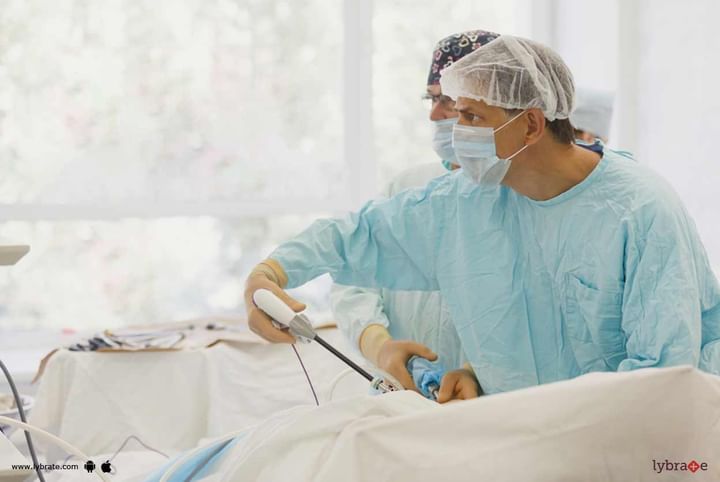Get the App
For Doctors
Login/Sign-up
Last Updated: Oct 23, 2019
BookMark
Report
Laparoscopy - Know All About It!
Dr. Goutham KumarGeneral Surgeon • 20 Years Exp.MBBS, MS - General Surgery, Fellowship - American Society of Transplant surgeons
Laparoscopy is a diagnostic procedure used to view inside of abdominal organs.
How to deal with it?
Before laparoscopy
- You have to be mentally prepared. You have to stop taking all the supplements, aspirin as it will act as a blood thinner which can give risk to haemorrhage.
- Take any relative/ friend to accompany you on the day of surgery and 24 hours after surgery. This person must be known one with whom you are comfortable who can take care of you, regarding medicines or to take you to the washroom, dressing.
- Prepare your food prior and keep before surgery.
- Do not wear silk as it will irritate the wound.
- Always keep your location clean with clean sheets, pillow, and analgesics.
Before pre-operative appointment
- You can ask your doctor what questions you have in your mind.
- Ask your doctor regarding details of analgesic prescription and fill up form before the procedure is done.
- Ask whether enema is required or whether shaving is required on a part where surgery is to be done.
- Ask your doctor if you can receive a videotape of the procedure so that the patient can view the whole laparoscopic procedure.
On the day of laparoscopy:
- Wear loose clothing.
- Avoid wearing makeup, body lotions, and deodorant.
- Remove watch, earrings, and bracelet.
- When you reach the hospital, relax.
- Don’t go into anxiety.
After The Surgery
- When you go home after surgery sleep and lie down for 24 hours since your abdominal muscles will be tensed for a few days.
- Splinting your belly is necessary. This can be done by hugging your pillow at the abdomen or put an abdominal binder around the abdomen. Do not sit upright until and unless wound heals as it is a fresh cut. Likewise, avoid wearing tight clothes which put pressure on the abdomen. You will have to hold a pillow while sneezing or coughing as the abdomen is very tender.
- There will be shoulder pain for some days. Try keeping heat pad to relieve pain.
- Eat light slowly starting with liquids than solids.
- Drink 2 litres of water and fibre-rich diet to avoid constipation as anaesthesia and analgesics can cause constipation after surgery.
- To get out of bed, first turn sideways take your feet out sit up using arm and then stand.
- Avoid getting into the sexual relationship for a certain period until bleeding stops after laparoscopy.
- Avoid taking a bath for a week after surgery.
- Apply vitamin E to the scar after surgery as it promotes faster healing.
- Keep moving after 2 hours as it will reduce gas pain. It takes a week to recover, but if any signs, like fever or a discharge, is seen, immediately contact your doctor.
- Strictly avoid wearing nylon clothes after surgery as it will cause a lot of irritation to the patient.
- Trust yourself and take much of rest for faster healing.



+1.svg)
